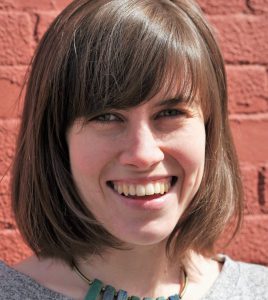Beyond stigma: Challenging STBBI stigma in the classroom



Sex education is a largely stigmatized and often politically volatile subject, even though access to comprehensive sexuality education is enshrined in international law as a human right.
The standard of sex ed that is taught across Canada is uneven, and even when it is scientifically accurate, it is often delivered in a risk- and fear-based way, particularly when it comes to teaching young people about safer sex and sexual transmitted and blood borne infections (STBBIs).
Fear- and risk-based messaging feeds stigma (be it internal or external) and is a structural driver of negative health outcomes. It impedes young people from learning about, retaining, and actually practising safer sex. Conversely, when sex ed is taught from a sex-positive perspective that normalizes sex and emphasizes the importance of consent, pleasure, and well-being, young people are more able to retain information and implement it into their daily lives.
Unfortunately, many teachers are hesitant when it comes to teaching sex ed in a way that moves beyond biological, disease-based narratives. In the work we’ve done with teachers at Action Canada for Sexual Health and Rights, an overwhelming majority expressed particular discomfort in framing sexual health lessons around pleasure due to the nature of student-teacher relationships and fear of backlash from school administrators and parents.
In response, we created Beyond the Basics, a sex ed curriculum companion resource that equips educators with the knowledge and confidence to teach a broad range of sex ed topics, from sexual orientation and gender identity, consent and healthy relationships, to safer sex and STBBIs.
The resource is grounded in three foundational tenets: human rights, sex-positivity and anti-oppression. This means that when it comes to teaching young people about HIV in a non-stigmatizing way, we talk about more than just epidemiology or how to put a condom on. It means situating the criminalization of HIV non-disclosure in Canada as a human rights violation, while discussing the inequitable distribution of power that makes some people more vulnerable to being criminalized because of gender, socio-economic status, race, sexual orientation, ability and/or immigration status. It means challenging perceived, enacted and institutional forms of stigma in the way that educators present information to young people.
Despite the incredible scientific advances in HIV prevention and treatment available in Canada, including the ground-breaking recognition that Undetectable = Untransmittable (U=U), HIV continues to be surrounded by stigma and misinformation. Challenging HIV stigma and the social narratives that reinforce it with accurate information is an essential part of the equation for teaching sexual health in a non-stigmatizing way.
The other parts of the equation include breaking down misconceptions about what counts as a “risky behaviour” by asking teachers and students to consider the everyday risks they take (like crossing the street) and asking them why some risks have a neutrality about them while others have a powerful social charge. This is the first step in socially delinking “risk” from specific sexual activities and particular identities.
Risk should be situated as a normal part of everyone’s daily experience and discussed as a continuum based on scientifically-proven transmission routes and placed within a larger more holistic context of factors that impact the ability to make decisions related to sex. Risk assessment is a skill that weighs the risk and benefits of an action and is an important part of sex ed. When taught correctly, it can be informative and empowering and permit individuals to make informed decisions about the behaviours they wish to engage in.
However, risk assessment is often taught from a fear-based, sex-negative approach, which results in over-focusing on the risk part of risk assessment; a sex-positive approach recognizes that there are benefits (such as pleasure!) that come from being sexually active and teaches young people to weigh the benefits and risks in order to come to a decision that is right for them.
Perceived, enacted and institutional stigma can all make it challenging to practise sex-positive risk assessment and the communication that is needed once a decision has been made, particularly when the decisions and choices occur within social, political, and economic contexts that marginalize some people’s rights and access while protecting and privileging the rights and access of others based on social identities, geographic locations, life experiences and behaviours.
Part of embodying the values of human rights, sex-positivity and anti-oppression within Beyond the Basics is helping teachers to critically reflect on their values and challenge their own assumptions about sex ed topics that are highly stigmatized, like abortion, teen pregnancy and parenting, non-monogamy, sex work, harm reduction, HIV, hepatitis C and other STBBIs.
One of the ways Beyond the Basics asks educators to reflect on their own values and assumptions is through educator reflection questions at the start of each chapter. An example of a question asked is: When you were your students’ age, were you able to access the kinds of sexual health care that you wanted/needed? What barriers existed for you in being able to access this kind of sexual healthcare? If educators’ own assumptions about stigmatized topics are left unchallenged, then their teaching risks reinforcing stigma and preventing young people from feeling comfortable asking the tough, but burning, questions.
While it is not only the role of teachers to help break this cycle of stigma, comprehensive sexuality education – that is based in human rights, sex-positivity and anti-oppression – is an essential part of supporting the sexual wellness and self-determination of everyone. It acknowledges and supports the belief that everyone deserves to lead healthy and fulfilling sexual lives.
Brittany Neron is the health promotion officer at Action Canada for Sexual Health & Rights.
Makeda Zook is the health promotion and education officer at Action Canada for Sexual Health & Rights.
